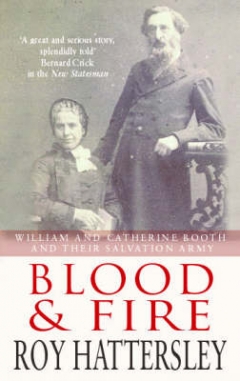
An uneducated youth, William Booth left home in 1849 at the age of twenty to preach the gospel for the New Methodist Connexion. Six years later he founded a new religious movement which succeeded to such a degree that the Salvation Army (which it became) is now a worldwide operation with massive membership. But that is only part of Booth's importance and heritage.
In many ways his story is also that of the Victorian poor, as he and his wife Catherine made it their lives' work to battle against the poverty and deprivation which were endemic in the mid- to late 1800s. Indeed, it was Catherine who, although a chronic invalid, inspired the Army's social policy and attitude to female authority. Her campaign against child prostitution resulted in the age of consent being raised and it was Catherine who, dying of cancer, encouraged William to clear the slums -- In Darkest England, The Way Out.
Roy Hattersley's masterful dual biography is not just the story of two fascinating lives but a portrait of an integral part of our history.
In many ways his story is also that of the Victorian poor, as he and his wife Catherine made it their lives' work to battle against the poverty and deprivation which were endemic in the mid- to late 1800s. Indeed, it was Catherine who, although a chronic invalid, inspired the Army's social policy and attitude to female authority. Her campaign against child prostitution resulted in the age of consent being raised and it was Catherine who, dying of cancer, encouraged William to clear the slums -- In Darkest England, The Way Out.
Roy Hattersley's masterful dual biography is not just the story of two fascinating lives but a portrait of an integral part of our history.


